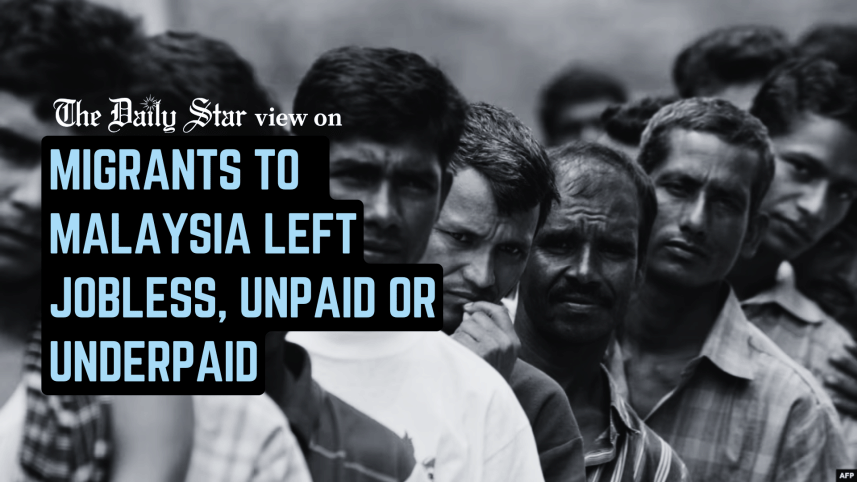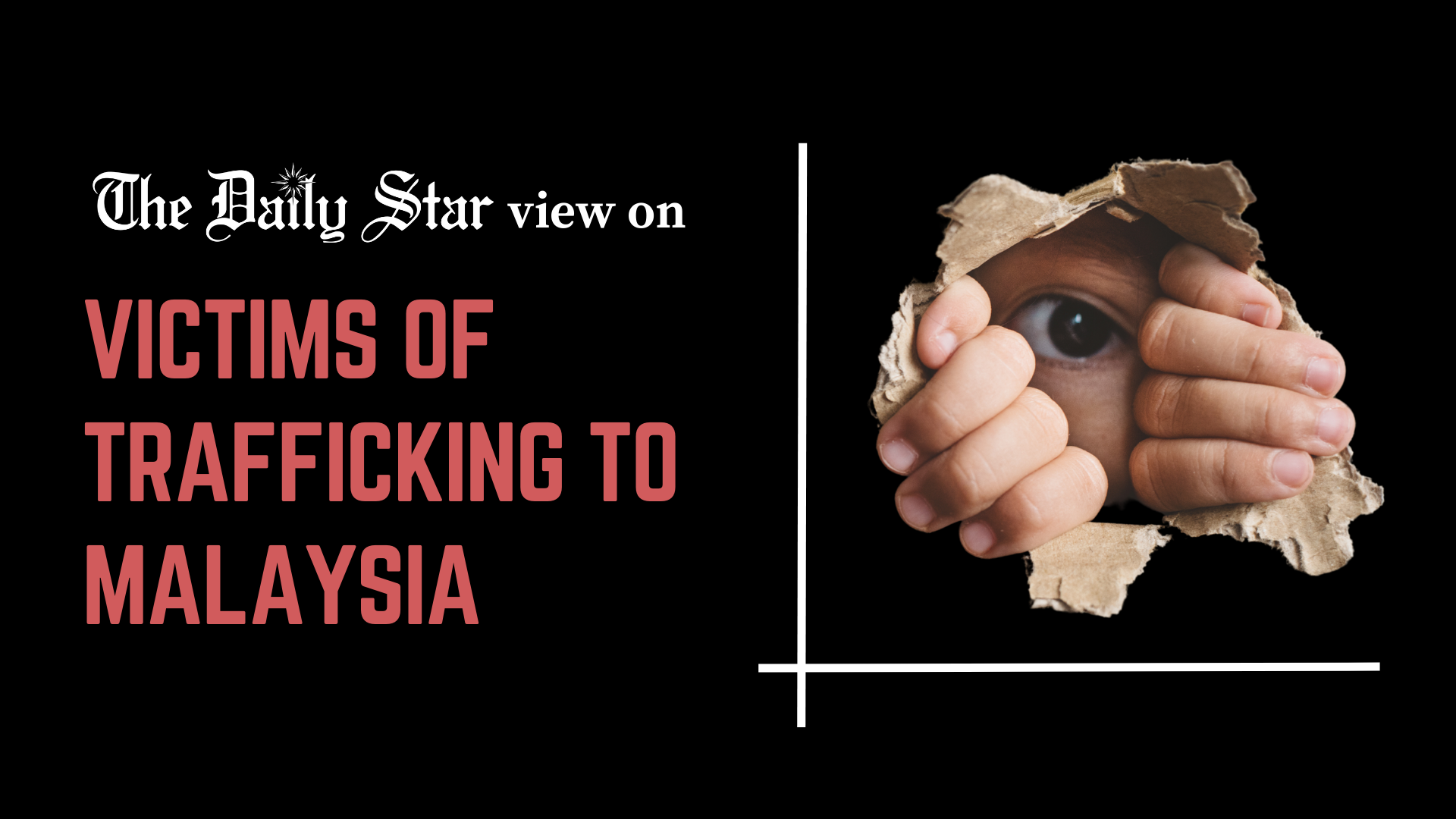Migrating to a life of unemployment

Back in 2022, we hailed Malaysia's decision to reopen its labour market to Bangladeshi workers as a positive development that would change the lives of aspiring migrants in the country. We are horrified to learn that many of their lives have, indeed, changed dramatically—only for the worse. According to a recent report by this daily, tens of thousands of Bangladeshi men were enticed by the prospect of jobs and fair pay under relaxed recruitment policies in Malaysia, only to find themselves among the ranks of the unemployed upon arrival.
Take the story of Jahirul, for example, who spent Tk 5 lakh to go to Malaysia seven months ago. He was promised a job with a construction company in Kuala Lumpur and a minimum wage of 1,500 Malaysian ringgit (about Tk 35,000 or $320). However, since his arrival, he has been locked up in a hotel room with other migrant workers and given rice and lentils twice a day, without any work or pay. Jahirul said he was one of 600 others hired by the same company. With over 400,000 Bangladeshis making the journey to Malaysia since the reopening of the labour market, a staggering number now find themselves facing unemployment, underpayment, and mounting debts, perpetually tortured by the thought of how they are letting down their families at home.
The exploitation extends beyond economic hardship, with companies withholding passports and trapping workers in dependency and vulnerability, as they risk becoming illegal residents if they leave the confines of the hotel. While some have sought recourse through complaints to Malaysia's Labour Department, the path to justice remains uncertain. Despite assurances from Bangladeshi authorities and promises of support from the high commission, tangible action has been elusive for those trapped in this cycle of exploitation.
Meanwhile, the Bangladeshi authorities do not even seem to know how many might be facing such a horrific fate in Malaysia. While some independent researchers say the number of such Bangladeshis range between 100,000 and 200,000, the Bangladesh High Commission in Malaysia and the Bangladesh Association of International Recruiting Agencies (BAIRA) say the number stands at a few thousands.
Who is to blame for this dire situation? It lies with a system that prioritises profit over human dignity, allowing unscrupulous employers and companies to exploit regulatory loopholes for financial gains. The failure to adequately regulate the influx of foreign workers has exacerbated an already precarious situation, leaving many to suffer the consequences. The companies and recruiting agents who are trapping workers with such false promises must be identified on an urgent basis before more aspiring migrants' dreams and lives are shattered. It is imperative that both Malaysian and Bangladeshi authorities take swift and decisive actions to address this humanitarian crisis. The rights and dignity of migrant workers must be upheld, and those responsible for their exploitation must be held to account.



 For all latest news, follow The Daily Star's Google News channel.
For all latest news, follow The Daily Star's Google News channel. 

Comments